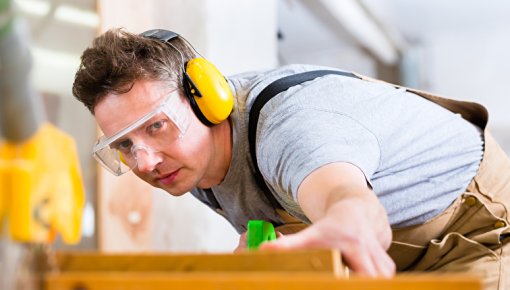How can hearing loss be prevented?

Various things can cause hearing loss over the course of a lifetime. Some of them can't be prevented, but others can. Protecting your ears from noise is key.
Most people only develop hearing problems in older age. This may happen due to normal aging processes, which can hardly be prevented. But because not all older people have poor hearing, it is thought that our genes play a role too. They can't be changed either. One important factor can be influenced, though: noise.
Other possible causes of hearing loss – or even deafness – include infections and head injuries. These kinds of causes can be prevented through things like vaccinations against certain diseases (e.g. measles and mumps) or wearing a crash helmet.
